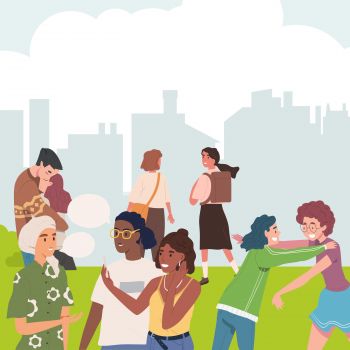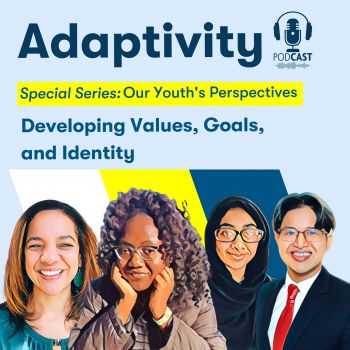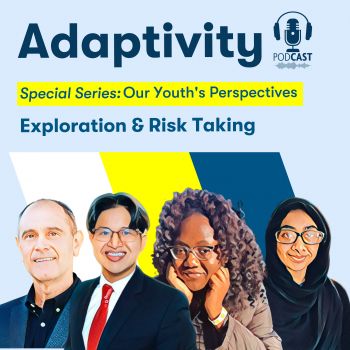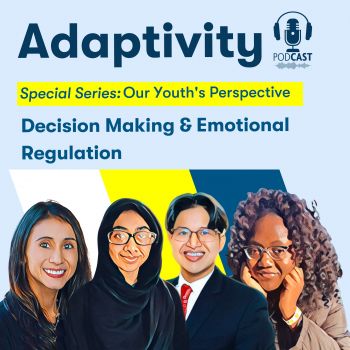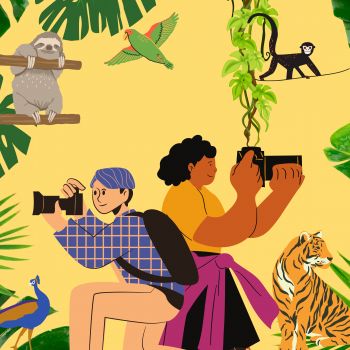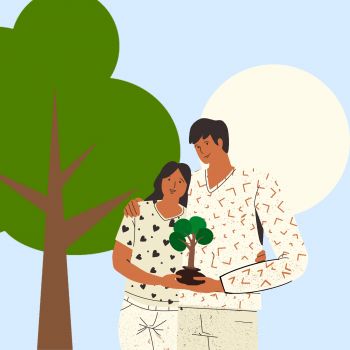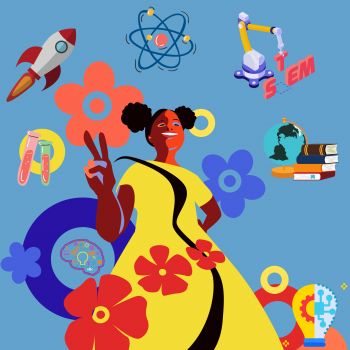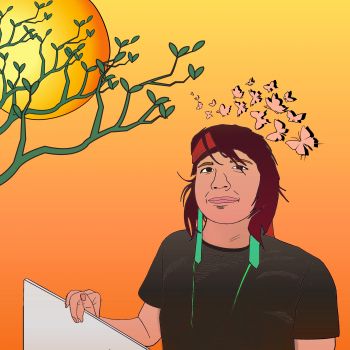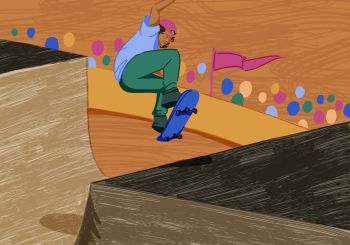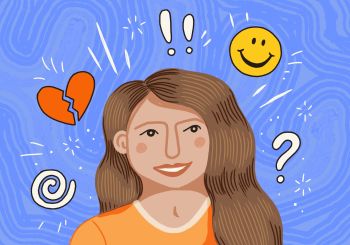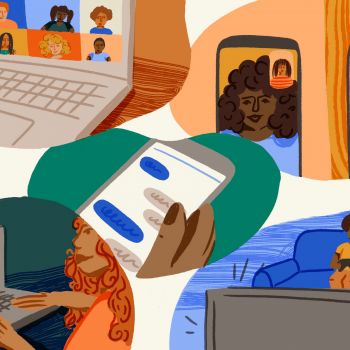Ron Dahl Some of the most profound relationships we have growing up are with our siblings. The extensive time and space we share with brothers and sisters can create deep friendships as well as intense conflict, providing unique social learning opportunities that shape our development.
Older siblings can influence our sense of identity as role models for who we want to become or motivation to define ourselves differently.
Andrea Rodriguez Like for my sisters, they have and will always be my biggest role models in my life.I look up to them so much.
Ron Dahl Younger siblings can provide opportunities to contribute to our family as we babysit, tutor, or strive to be a positive role model ourselves.
Kaelyn Morales During Covid, my sister and I were stuck at home doing online school. I would make sure she was up on time to log on into her zoom class, wake up a little earlier to make her breakfast, and help her with her schoolwork while trying to balance out mine.
Ron Dahl And siblings can offer needed support in ways that change as we continue to grow and learn.
Faith Veenker She was more someone I would look up to rather than someone who felt like a direct peer. Now you know that’s changed and we’re older and in similar life stages and can tell each other more and give each other advice.
*****
Ron Dahl I’m Ron Dahl, founding director of the Center for the Developing Adolescent, and this is Adaptivity, where we explore the science of adolescence, untangling misconceptions about the years between childhood and adulthood.
We explore new insights into the rapid cognitive, emotional, and social changes that are happening during these years. And how the developing adolescent brain is primed to promote healthy and adaptive learning.
This is the third episode of a three-part series called “Our Youth’s Perspective,” brought to you by members of the Center’s Youth Scientific Council On Adolescence.
Many of the formative learning processes that shape development in adolescence occur in the context of relationships. Relationships between siblings are often among the most impactful and enduring versions of these social learning experiences. Siblings can sometimes be a reliable source of support, a cause of conflict, an avenue to try new things and take risks, or an opportunity for learning to care and contribute in valuable ways.
The ongoing dynamics of comparing and competing, caring and fighting and making up again, can provide valuable learning and practice in dealing with challenging emotions in ourselves and others. They can provide opportunities for learning to navigate emotionally charged relationships, learning to repair and trust, and learning to set boundaries. These formative learning experiences can contribute to developing skills, insights, and social capacities that carry over into our adult lives.
Now, let’s hear what members of our Youth Scientific Council on Adolescence have to say about their sibling relationships.
*****
Faith Veenker For this final episode of Adaptivity, we are discussing relationships, specifically sibling relationships. My name is Faith.
Andrea Rodriguez My name is Andrea.
Kaelyn Morales And I’m Kaelyn.
Faith Veenker So to start off this episode, we have asked our siblings to describe our relationship in one word. Now, of course, when I asked my sister this question, she gave me four words instead of one as a sister does. She said our relationship is “close, strong, dynamic and unique.”
Andrea Rodriguez Okay, so for me, I have two older sisters and one of them said “warm” and the other one said “gentle.” So I think that kind of just shows you guys how I’m forever going to be viewed to them as a baby in the family, even when I’m like in my 30s. Uh, what about you, Kaelyn?
Kaelyn Morales When asking my younger sibling this question, she said, “hilarious.” I couldn’t help but laugh when I heard her response. I know that hilarious is such a fitting word to describe our relationship.
Faith Veenker So Andrea and I both have older siblings. But Kaelyn, you have a younger sibling. So, tell us a little bit about your experience with that.
Kaelyn Morales Well, as an older sibling, I have felt like a third parent to my 12-year-old sister who is in middle school, not only from a day-to-day basis, but it specifically progressed during the pandemic. During Covid, my sister and I were stuck at home doing online school while both of my parents were working.
Throughout the days, I would make sure she was up on time to log on into her zoom class, wake up a little earlier to make her breakfast, and help her with her schoolwork while trying to balance out mine. Although it was a repetitive schedule, I felt that experience connected us more, which brought me close to her.
Faith Veenker Yeah, I had a very different experience with my older sister since she is six years older than me, you know, now we have that close, strong relationship. Like my sister said. But since there’s this significant age gap between us when we were younger, it was harder for us to relate to each other as peers since we were at such different life stages. She was more someone I would look up to rather than someone who felt like a direct peer. Now you know that’s changed and we’re older and in similar life stages and can tell each other more and give each other advice.
Andrea Rodriguez Yeah, Faith, I relate a lot with you because I also have a 5- to 6-year age gap with my two older sisters, and they’ve always looked out for me. They’ve been super amazing. But when I was around, like I’d say maybe 9 years old, that’s when I really felt detached from my sisters, just because they were way older than me. They had other priorities, hobbies, and there was just so much a big barrier between us that I couldn’t really relate to them. And at that time, our relationship consisted a lot of, like a play/fight relationship. And of course now we just laugh about it. But at that moment it wasn’t really funny to me. It was heartbreaking, like just being the one that’s always being fought with. So I felt very isolated from them.
Now that I am older, obviously I get to connect with my sisters a lot more and they continue to look out for me, give me advice and we we don’t live with each other anymore, so we always do try to like prioritize a certain day of the week to FaceTime or watch a show or something like that.
Faith Veenker Yeah, it seems like we have pretty varied experiences with our siblings. You know, I can definitely imagine how these different relationship dynamics play a pretty big role in, like our development and shaping our identities as well as our relationships with other people like, you know, our family, friends, mentors. I would think that, like, a positive sibling relationship, like the one I have with my sister, would serve as a pretty strong protective factor against, like, other types of hardship. But a negative sibling relationship could cause pretty significant problems in someone’s life.
Andrea Rodriguez Yes, definitely. Like for my sisters, they have and will always be my biggest role models in my life. I look up to them so much, and I always love getting the chance to just brag about them just because I love them, and I’m so proud of them. So while I respect them, I’ve also felt extremely inferior to them while I was growing up, mainly because I was always reminded by my parents to always do good in school and be like my sisters. So at a young age, this affected me greatly also because since we all went to the same school, teachers that had my sisters always expected the same personality and student behavior from me, and that affected me greatly.
But I was lucky enough to have the sisters that I do, because they’ve always reminded me that everyone’s going to be different, especially between us, even though we’re sisters. So having them being so understanding and helpful has helped me today to become a hard working person, just like they have showed me my whole life.
Andrea Rodriguez Yeah, I can really resonate with Faith. My sister and I have a positive sibling relationship that has impacted me in many ways. She is someone who understands me emotionally, and we have created an endless amount of memories through our humor.
Being a role model to her is not just about showing her things that I enjoy. It’s also about figuring out what kind of person that I want to be. Knowing that she looks up to me makes me want to do better. I want her to see that it is okay to make mistakes and be able to learn from them. The positive changes I make for my sister have also affected how I connect with friends and family, making my relationships a lot more genuine and meaningful.
*****
Andrea Rodriguez This is Andrea. We are very thankful to have Dr. Kimberly Updegraff here with us to answer some of our questions about sibling relationships. Professor Updegraff is a professor at Purdue University in the department of family and human development.
Kimberly Updegraff Thanks so much for having me.
Kaelyn Morales This is Kaelyn. Hi, Dr. Updegraff. Can you please tell us a bit about what you study? And of course the word of your sibling choice to describe your relationship with your siblings.
Andrea Rodriguez Do you think any of our adjectives are particularly common or telling about sibling relationships? For faith, Kaelyn and I had the words like close, strong, gentle, hilarious…
Kimberly Updegraff So, I am the oldest of three children in my family. Um, so I have a younger brother and a younger sister, and I didn’t get a word from my brother, but my sister said, “close.” I would consider her my best friend.
Um, my research for many years has actually been on relationships between siblings. So when I heard about the topic of your podcast, I was super excited to be asked to be on it. And most of my work over the last 20 years has actually been on Latino families. So I’ve studied predominantly Mexican origin families and their relationships when they were teenagers. And my most recent work is with kids in middle childhood. So all elementary school kids and their sibling relationships.
Faith Veenker So this is Faith. Can you tell us about the role of sibling relationships in adolescent development? ‘Cause, I mentioned earlier that I think positive sibling relationships can protect us against hardships. Is there research about that?
Kimberly Updegraff There is. And you’re right that, um, close and warm relationships with sisters and brothers can be really helpful when you’re going through stressful experiences. You were all talking about your relationships with sisters. We know that relationships with sisters tend to be particularly close relationships, and I thought your experiences were very consistent with that. We often talk about sibling relationships as emotionally intense relationships because they tend to have lots of positive, but also, sometimes plenty of conflict. Your sister or brother is someone who knows a lot about you and can and can be really supportive, but also could make you really mad very quickly.
There is research that close and supportive relationships can help you through hard times, like maybe a transition in a family, marriage, or divorce, things like that. We also know sisters and brothers help you develop positive kinds of skills. So close relationships with sisters and brothers can help you be more empathetic, help you learn to take perspectives.
We also know sisters and brothers can be a source of risk. So sometimes they may, um, help you get in trouble or, um, may offer you things that they can do because they’re older than you or expose you to peers that may, um, may kind of help you get in trouble. So we know that there’s there’s lots of positives that happen in sibling relationships, but also sometimes they can be a source of risk.
Kaelyn: This is Kaelyn. So, we also talked about birth order, sibling comparisons, age gaps, and caretaking. Do you think these things play a role in shaping our identities and perception of our social status and sense of purpose especially during adolescence?
Kimberly Updegraff That’s a great question. Birth order gets a lot of attention, and we know it doesn’t, it’s not a big part of forming your personality, so who you are as a person. But I think, like you mentioned in your experience with your siblings that older siblings tend to get more responsibilities. So they might have to look after the younger sister or brother or maybe had to help them do online school during the pandemic. Maybe watch their sister and brother, sisters and brothers when parents go out for the evening. So there’s, there’s ways in which you might have different responsibilities in the family because you’re the older versus the younger, child.
In terms of age gap, most of the sisters and brothers we study tend to be about 4 to 5 years apart at the largest. And so we don’t know as much about families that maybe siblings are farther spaced apart, but we know that that closer age spacing tends to mean more closeness and, and also sometimes more conflict.
Kaelyn Morales You mentioned a lot of your work has focused on Latino young people. As a Latina, is there anything culturally specific about sibling relationships among Latino families?
Kimberly Updegraff So most of my work I mentioned over the last 20 years has been with Mexican origin families predominantly who are raising adolescent sisters and brothers, and what we know from that work is that in our Mexican origin families who were largely in the greater Phoenix area, that, our teenagers spent a really large amount of time with sisters and brothers more than in other families we’ve studied. And so they were spending close to 20 hours a week with their sisters and brothers. Um, outside of the regular school day.
We did what we call daily diary data, and we called them on the phone every night to find out how much time they were spending doing with different people and doing different things. And, and they were spending more time with their sisters and brothers than they were spending with friends, with their parents, with their extended family, alone. So we know that they’re a really important part of that cultural context.
Um, we also know that our families really place a strong value on their family relationships and the supports that family members can provide. And that those strong values tend to be linked to even closer sibling relationships in the families we studied. So we really thought about sibling relationships as particularly salient in families that value close relationships. And the sisters and brothers were really important in the families we studied.
Andrea Rodriguez That was very insightful Dr. Updegraff; thank you so much. This last question we have for you here is: what advice do you have for those listening who might have some room for improvement in their sibling relationships? Or even those who don’t have siblings?
Kimberly Updegraff So, your sisters and brothers are around for the longest part of your life span, so they’re often one of the first people in your lives, and they’re going to be part of your lives past when your parents are around and your grandparents are around, so they are really important relationships, ones that, you know, have potential to rely on. And they’re the people who understand your family history and all those really important parts of your life. So we know that they really matter and that close relationships with your sisters and brothers tend to predict your health as you get older.
So I think knowing that there are people that are going to be in your lives for a long time and, and working hard to, to get along and communicate and resolve your conflicts, they provide a great opportunity to learn some of those things and, and sometimes even practice them for things like friendships and romantic partners. And so they can really be a resource in your life.
In terms of people who don’t have siblings, they often find other people in their lives. So maybe it’s their cousins, maybe it’s close friends that kind of fulfill those roles, if they don’t have our sister or brother.
Andrea Rodriguez I’m a younger sister, so over the years my relationship with my sister has improved, and I think like you said, our relationship is always going to be important. Like, aside from our parents, we are always going to have each other, and we’re gonna be the ones that are always helping each other. Well, thank you so much, Dr. Updegraff. We are very thankful for your time and insights. Thank you for joining us!
Kimberly Updegraff Thank you so much for inviting me.
Faith Veenker And thank you for learning more about sibling relationships with me, Faith…
Kaelyn Morales Kaelyn
Andrea Rodriguez …and Andrea!
Faith Veenker This is the final episode of our three part series called “Our Youth’s Perspective” from the Center for the Developing Adolescent. Thank you for listening.
*****
Ron Dahl Our connections and dynamic interactions with our siblings provide unique opportunities for social learning–and valuable experiences in building and managing the complex challenges that relationships can create during our adolescent years.
How we relate to and connect with our siblings can help us define who we are, build empathy, and acquire skills to navigate conflict and hurt feelings.
The learning we experience in these relationships with our siblings can help us to develop clarity about who we are as individuals–as well as skills and insights about connecting with others. These can help to develop our capacities for building healthy connections and relationships throughout our lives.
I’m Ron Dahl, and this has been a special episode of Adaptivity from the Center for the Developing Adolescent.
We’d like to thank Faith Veenker, Andrea Rodriguez, and Kaelyn Morales– and all the members of the Center’s Youth Scientific Council on Adolescence for sharing their experiences with us.
For more on the developmental science of adolescence and the YSCA, check out our Instagram: @develadolescent.
If you’d like to learn more about the science of adolescence, visit us at adaptivitypodcast.org or share your thoughts through the contact information at our website.
Our podcast is produced at UC Berkeley for the Center for the Developing Adolescent. Our senior producer is Polly Stryker. Our producer is Meghan Lynch Forder. And our engineer is Rob Speight.
A special thanks to Peter Jivotovski at the UCLA Learning Center’s De Neve Studio and to Xochitl Arlene Smola for her facilitation of the YSCA projects.
*****


_350_350_80_c1.jpg)
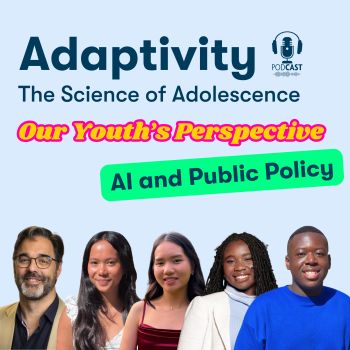
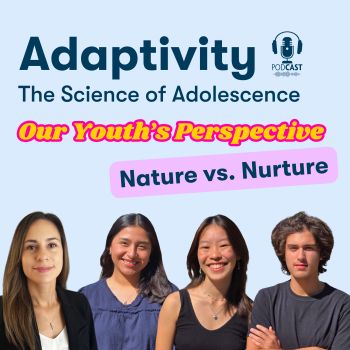
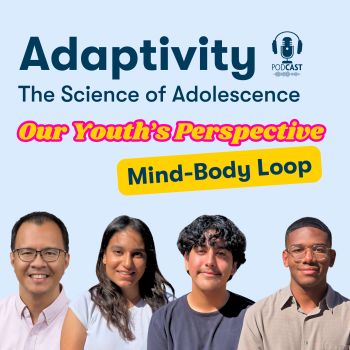
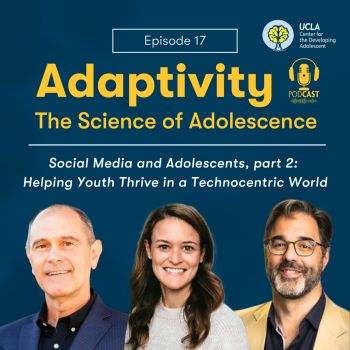
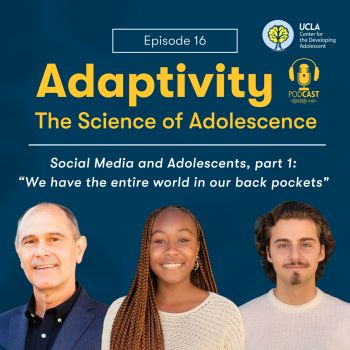
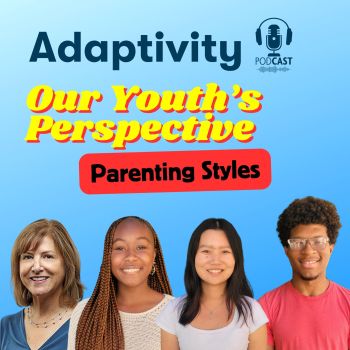
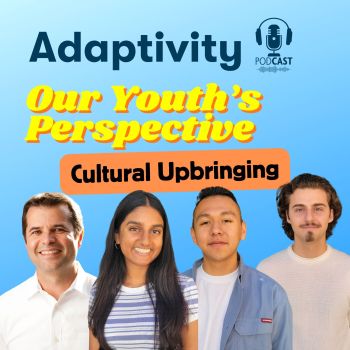
_350_350_80_c1.jpg)
